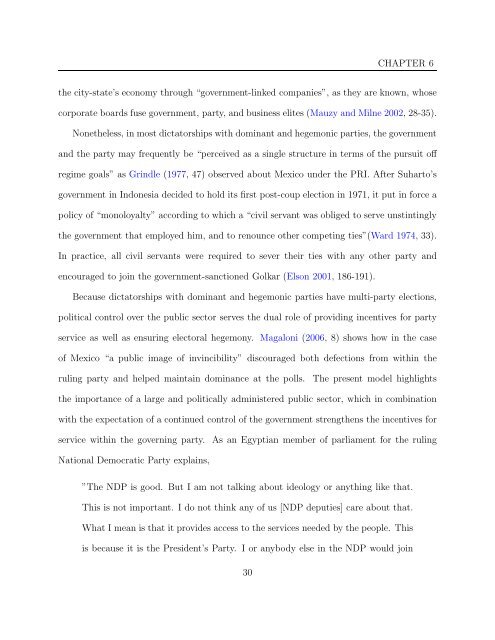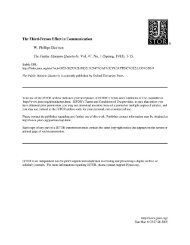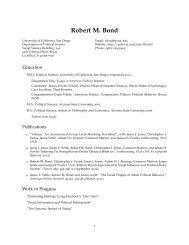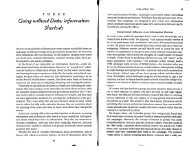Chapter 6 Why Authoritarian Parties? The Regime Party as an ...
Chapter 6 Why Authoritarian Parties? The Regime Party as an ...
Chapter 6 Why Authoritarian Parties? The Regime Party as an ...
Create successful ePaper yourself
Turn your PDF publications into a flip-book with our unique Google optimized e-Paper software.
CHAPTER 6<br />
the city-state’s economy through “government-linked comp<strong>an</strong>ies”, <strong>as</strong> they are known, whose<br />
corporate boards fuse government, party, <strong>an</strong>d business elites (Mauzy <strong>an</strong>d Milne 2002, 28-35).<br />
Nonetheless, inmost dictatorships withdomin<strong>an</strong>t <strong>an</strong>dhegemonic parties, thegovernment<br />
<strong>an</strong>d the party may frequently be “perceived <strong>as</strong> a single structure in terms of the pursuit off<br />
regime goals” <strong>as</strong> Grindle (1977, 47) observed about Mexico under the PRI. After Suharto’s<br />
government in Indonesia decided to hold its first post-coup election in 1971, it put in force a<br />
policy of “monoloyalty” according to which a “civil serv<strong>an</strong>t w<strong>as</strong> obliged to serve unstintingly<br />
the government that employed him, <strong>an</strong>d to renounce other competing ties”(Ward 1974, 33).<br />
In practice, all civil serv<strong>an</strong>ts were required to sever their ties with <strong>an</strong>y other party <strong>an</strong>d<br />
encouraged to join the government-s<strong>an</strong>ctioned Golkar (Elson 2001, 186-191).<br />
Because dictatorships with domin<strong>an</strong>t <strong>an</strong>d hegemonic parties have multi-party elections,<br />
political control over the public sector serves the dual role of providing incentives for party<br />
service <strong>as</strong> well <strong>as</strong> ensuring electoral hegemony. Magaloni (2006, 8) shows how in the c<strong>as</strong>e<br />
of Mexico “a public image of invincibility” discouraged both defections from within the<br />
ruling party <strong>an</strong>d helped maintain domin<strong>an</strong>ce at the polls. <strong>The</strong> present model highlights<br />
the import<strong>an</strong>ce of a large <strong>an</strong>d politically administered public sector, which in combination<br />
with the expectation of a continued control of the government strengthens the incentives for<br />
service within the governing party. As <strong>an</strong> Egypti<strong>an</strong> member of parliament for the ruling<br />
National Democratic <strong>Party</strong> explains,<br />
”<strong>The</strong> NDP is good. But I am not talking about ideology or <strong>an</strong>ything like that.<br />
This is not import<strong>an</strong>t. I do not think <strong>an</strong>y of us [NDP deputies] care about that.<br />
What I me<strong>an</strong> is that it provides access to the services needed by the people. This<br />
is because it is the President’s <strong>Party</strong>. I or <strong>an</strong>ybody else in the NDP would join<br />
30











